Comprehensive Table of Contents: Your Guide to Online Safety Tips
Tips to Keep Safe While Online: Keep Safe While on the Web

The internet is a vast and ever-changing landscape. It can be a great resource for information, entertainment, and communication. However, it can also be a dangerous place. There are many risks associated with online activity, including cyberbullying, identity theft, and malware.
Here are some tips to help you stay safe while online:
- Be aware of the risks. The first step to staying safe online is to be aware of the risks. Know what kind of information you are sharing online and with whom. Be careful about what links you click on and what files you open.
- Use strong passwords. Your passwords are the keys to your online accounts. Make sure they are strong and unique. Don’t use the same password for multiple accounts.
- Be careful about what information you share online. Don’t share your personal information, such as your address, phone number, or Social Security number, with people you don’t know. Be careful about what you post on social media.
- Use privacy settings. Most websites and apps have privacy settings that you can use to control who sees your information. Make sure you understand these settings and use them to protect your privacy.
- Keep your software up to date. Software updates often include security patches that can help protect your devices from malware. Make sure you keep your software up to date, including your operating system, web browser, and antivirus software.
- Be careful about what you download. Only download files from websites you trust. Before you open a file, make sure you scan it for malware.
- Be aware of phishing scams. Phishing scams are emails or text messages that try to trick you into giving out your personal information. Don’t click on links in phishing emails or text messages. If you think you have received a phishing scam, report it to the Federal Trade Commission (FTC).
- Use a VPN. A VPN can help protect your privacy and security when you are online. A VPN encrypts your traffic, making it more difficult for hackers to intercept it.
By following these tips, you can help keep yourself safe while online.
Here are some additional tips that you may find helpful:
- Be careful about who you talk to online. Don’t give out your personal information to people you don’t know. If you meet someone online, be sure to meet them in a public place for the first time.
- Be aware of the signs of cyberbullying. If you are being cyberbullied, don’t be afraid to tell someone. You can talk to a parent, teacher, or counselor. You can also report cyberbullying to the website or app where it is happening.
- Be careful about what you click on. Don’t click on links in emails or text messages from people you don’t know. These links could lead to malware or phishing scams.
- Keep your devices secure. Use strong passwords and keep your software up to date. You should also install antivirus software on your devices.
You Must Take Your Online Safety Seriously

Scams are successful because people sometimes let down their guard. Hacks can happen when a security profile isn’t strong enough. Bad things happen to good people because the bad guys figure out a way to accomplish their goals.
It is not your fault if you are a victim of an online hack or scam. It is not your fault if a virus infects your computer. If these things happen, you do need to take steps to recover from such an incident. Then use these tips to create a safer online experience for yourself and the ones you love.
Remember, you are not alone. There are people who can help you stay safe online. If you have any questions or concerns, don’t hesitate to ask for help.








